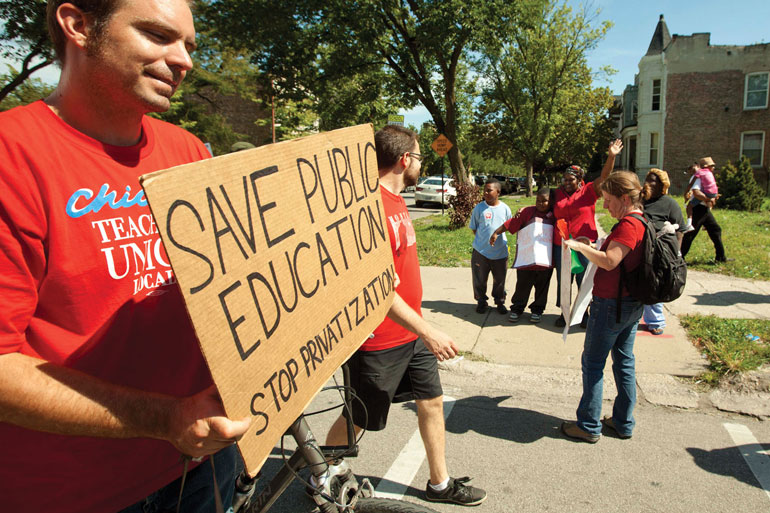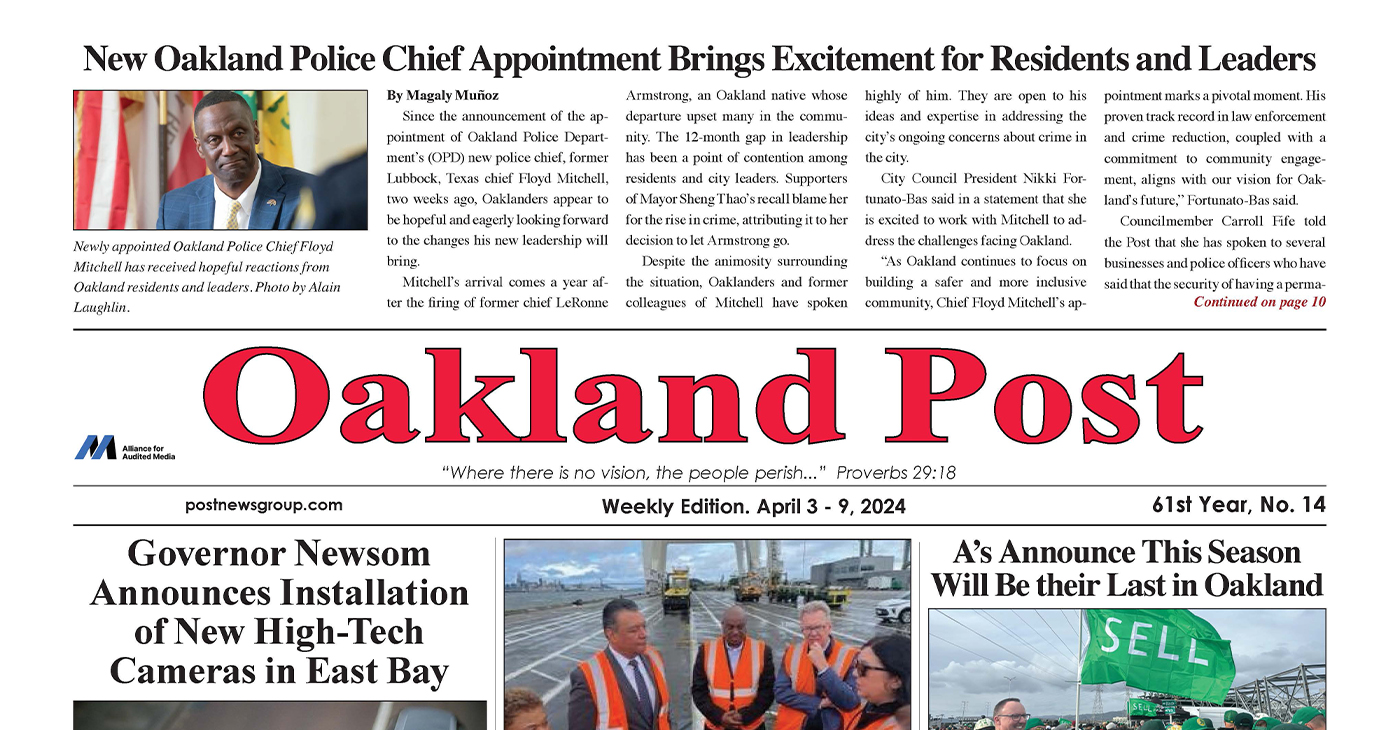Opinion
OP-ED: Strike Against National School Voucher Bill

Public Education in the United States is under attack. We cannot teach children who are hungry or disabled. If House of Representatives Bill 610 passes, our children will suffer.
We cannot allow public schools to be defunded.
HR Bill 610 will effectively start the school voucher system, to be used by children ages 5 to 17, and starts the de-funding process of public schools.
The bill will eliminate the Elementary and Secondary Education Act (ESSA) of 1965, which is the nation’s educational law, providing equal opportunity in education, the law that provides funding for programs for struggling learners, Advanced Placement (AP) classes, English Learner (EL) classes, classes for Native Americans, Rural Education, Education for the Homeless, School Safety (Gun-Free schools), Monitoring and Compliance and Federal Accountability Programs.
Bill 610 also abolishes the Nutritional Act of 2012 (No Hungry Kids Act) which provides nutritional standards in school breakfast and lunch. For our most vulnerable students, this may be the only nutritious food they have in a day.
The bill has no wording whatsoever protecting special needs kids, no mention of the Individuals with Disabilities Education Act (IDEA or Free Appropriate Education for Student with Disabilities (FAPE).
Under the Elementary and Secondary Education Act (ESSA) of 1965, children with disabilities have a right to access a quality educational curriculum and requires to address how they will improve conditions for learning including reducing incidents of bullying and harassment in schools, overuse of discipline practices and reduce the use of aversive behavioral interventions (such as restraints and seclusion).
We cannot allow this destructive bill to pass.
Teachers can organize a strike for the week following Spring break. Teachers, parents and administrators who care about children should join together and take a “sick week” the week after Spring Break, April 24-30.
During this week of strike, teachers can conduct “teach ins” and organize against this national human crisis.
We have the power, but we must organize.
If parents, teachers and administrators refuse to work for one week, we can force Congress to kill this bill. Congress cannot stand up to the united opposition they will face if they consider passing HR 610.
Activism
Oakland Post: Week of April 17 – 23, 2024
The printed Weekly Edition of the Oakland Post: Week of April 17 – 23, 2024

To enlarge your view of this issue, use the slider, magnifying glass icon or full page icon in the lower right corner of the browser window. ![]()
Activism
Oakland Post: Week of April 10 – 16, 2024
The printed Weekly Edition of the Oakland Post: Week of April 10 – 16, 2024

To enlarge your view of this issue, use the slider, magnifying glass icon or full page icon in the lower right corner of the browser window. ![]()
Activism
Oakland Post: Week of April 3 – 6, 2024
The printed Weekly Edition of the Oakland Post: Week of April 3 – 6, 2024

To enlarge your view of this issue, use the slider, magnifying glass icon or full page icon in the lower right corner of the browser window. ![]()
-

 Activism4 weeks ago
Activism4 weeks agoOakland Post: Week of March 27 – April 2, 2024
-

 #NNPA BlackPress4 weeks ago
#NNPA BlackPress4 weeks agoFrom Raids to Revelations: The Dark Turn in Sean ‘Diddy’ Combs’ Saga
-

 #NNPA BlackPress4 weeks ago
#NNPA BlackPress4 weeks agoCOMMENTARY: D.C. Crime Bill Fails to Address Root Causes of Violence and Incarceration
-

 #NNPA BlackPress4 weeks ago
#NNPA BlackPress4 weeks agoCOMMENTARY: Lady Day and The Lights!
-

 #NNPA BlackPress4 weeks ago
#NNPA BlackPress4 weeks agoMayor, City Council President React to May 31 Closing of Birmingham-Southern College
-

 #NNPA BlackPress4 weeks ago
#NNPA BlackPress4 weeks agoBaltimore Key Bridge Catastrophe: A City’s Heartbreak and a Nation’s Alarm
-

 #NNPA BlackPress4 weeks ago
#NNPA BlackPress4 weeks agoBaltimore’s Key Bridge Struck by Ship, Collapses into Water
-

 #NNPA BlackPress4 weeks ago
#NNPA BlackPress4 weeks agoBeloved Actor and Activist Louis Cameron Gossett Jr. Dies at 87


















































